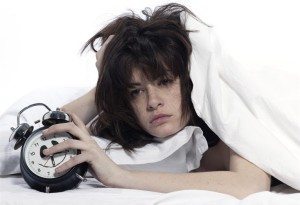Treating Insomnia Naturally

Insomnia Increases Disease Risk & Exacerbates Existing Conditions:
Insomnia can lead to elevated levels of pro-inflammatory chemicals and “stress hormones” like cortisol contributing to an array of conditions:
- Weight Gain & Diabetes
- Weakened Immune System
- Osteoporosis & Arthritis
- Chronic Pain (hypersensitivity)
- Inflammatory Bowel Disease
- Heart Disease
- Depression & Anxiety
Despite the widespread consequences, conventional treatment options for insomnia remain far from ideal. In fact, a recent controlled study revealed that eight of the most commonly used sleeping pills are linked to a surprising three-fold increased risk of death and a significant increased risk of cancer. Insomniacs are already at increased risk for disease as it is, but with this new study, it seems that even if these medications effectively induce sleep, they aren’t allowing the restorative Stage 4/REM sleep necessary for true rest & restoration.
These alarming findings, on top of the already known side effects and potential for abuse, highlight the need for patient alternatives to manage insomnia. Thankfully, there are many natural supplements & herbs that are effective at inducing sleep with less risk & fewer side effects.
Valerian Root:
Valerian is one of the most common sedative herbs used for sleep, and modern research on its mechanism of action elucidates why. Like many hypnotic drugs, valerian stimulates the GABAergic neurotransmitter system which reduces brain activity allowing users to fall asleep more easily. Unlike these drugs however, valerian increases the percentage of time spent in slow-wave sleep, thus increasing sleep quality as well. Evidence also suggests that valerian lacks the mood-altering & negative cognitive effects demonstrated by similar hypnotic drugs. Efficacy increases with continued use so valerian should be used for at least 2 weeks for best results.
Kava Kava:
Kava has been used as a ceremonial drink in the Pacific Islands for hundreds of years and is best known for its relaxing qualities. Several studies indicate that kava may be useful in the treatment of anxiety, insomnia & other related nervous disorders. Kava acts on GABAergic receptors much like valerian, except the sedative effects are experienced much more quickly. This makes kava a great option for occasional sleeplessness and can even be used for panic attacks in higher doses.
Passionflower:
One of my favorite herbs native to Texas, passionflower is best known for its sedative & anxiety-reducing effects. In herbalism, passionflower is not usually used by itself to treat insomnia, but is added to many sleep formulations for its synergism with other herbs.
Magnesium, Calcium & other Minerals:
Because of their alkaline nature, minerals are nature’s way of counteracting the acidic environment that is the cause of most muscle tension. A delicate balance of electrolytes — sodium, potassium, calcium & magnesium — is necessary for proper muscle function. Magnesium in particular helps relax the muscles, calm the nerves, and thus helps induce sleep. Magnesium also decreases the release of cortisol which is a common cause of sleep disruption.
*If you are taking a mineral supplement already, try taking it at night instead to take advantage of its beneficial effect on muscle relaxation & sleep!
—
Like in nature itself, herbs & nutrients usually work better in combination than by themselves. This is why I recommend a product called, “MyoCalm P.M.” by Metagenics. Containing many of the herbs & mineral mentioned above, it uses a synergistic blend of calcium, magnesium, valerian, passionflower, lemon balm & hops to support relaxation & sleep. Please ask our wellness experts at Dougherty’s for more information on this & similar products for sleep.
In the next article in our series on insomnia, I will be discussing, “The Importance of Melatonin & Sleep Hygiene.” Utilizing this practical knowledge & advice, we can begin to live in better alignment with our natural circadian rhythms (biological clock) — maximizing our restorative sleep at night AND our energy levels during the day!
“There is only one thing people like that is good for them; a good night’s sleep.”
~ Edgar Howe
*Disclaimer: These statements have not been evaluated by the Food and Drug Administration. Information and advice is based on available research and my own personal clinical experiences. As always, please consult your physician, pharmacist or other qualified health professional before taking any nutritional supplements or herbs, especially if you’re currently taking any medications.
Dr. David and the entire Integrative Wellness Fx team are passionate about sharing their expertise to empower you with knowledge supportive of your holistic health & lifestyle.
Join our tribe and stay connected with the latest updates, events, workshops & more!
Subscribe to our newsletter
Subscribe
You're all signed up!
Be sure to whitelist our email address so that all the goodies make it to your inbox.